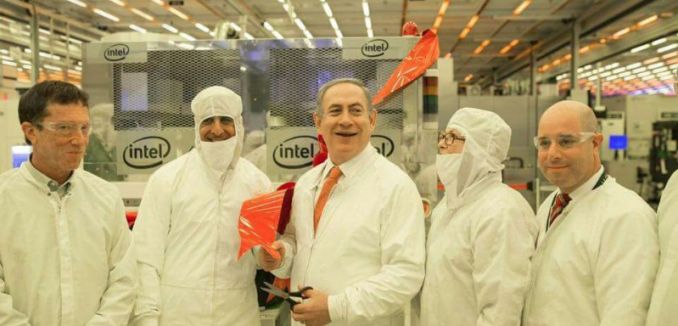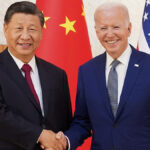Introduction
Intel, the world’s leading chipmaker, has thrown a wrench into its ambitious expansion plans and the company has frozen construction on a massive $25 billion chip fabrication plant in Kiryat Gat, Israel.
This unexpected move comes amidst internal struggles within Intel and ongoing geopolitical tensions in the region.
Follow us on Linkedin for everything around Semiconductors & AI
Intel Israel Factory: Background
The Kiryat Gat expansion was poised to significantly boost Israel’s economy. Intel, the largest private employer in Israel with 12,000 employees, had committed to purchasing services and products worth 60 billion shekels, backed by $3.2 billion in incentives from the Israeli government.
However, Intel’s current financial instability and the increasing competition from global semiconductor giants have led to a strategic reevaluation.
Read More: 8 Companies Poised to Benefit Significantly from the AI Boom
Intel Israel delay: Why It Matters
This freeze impacts not only Intel but also the broader Israeli tech ecosystem. The delay has already affected local infrastructure providers, such as Lesico, which reported a halt in work valued at 90 million shekels.
Moreover, Intel’s decision could serve as a cautionary signal to other multinational companies considering investments in Israel.
The Ministry of Finance’s attempt to downplay the delay highlights the government’s concern over potential economic repercussions.
Read More: $274 Million: German Startup to Revolutionize Chip Technology with Graphene – techovedas
Intel Israel delay: Official Stance
Intel’s official response to the delay is that “managing a project of this magnitude, especially in our industry, usually involves schedule adjustments. Our decisions are based on business conditions, market dynamics, and responsible capital management.”
However, sources close to Intel indicate that the freeze affects one part of the factory, with the continuation of work in the first clean room while the second is on hold pending a decision on the chip technology it will use.
Intel Israel delay: Geopolitical and Economic Implications
The global semiconductor industry is in flux, with countries like the U.S., China, and Japan heavily subsidizing domestic chip production to reduce reliance on Taiwanese semiconductors.
For Israel, this poses a significant economic threat. A smaller semiconductor industry could diminish Israel’s strategic importance, making it more vulnerable to geopolitical tensions.
As C.C. Wei, CEO of TSMC, emphasized, maintaining Taiwan’s and by extension, Israel’s, lead in semiconductor production is crucial.
Intel Israel delay: Strategic Shift and Competitive Pressures
Intel Kiryat Gat plant was intended to be its first in Israel to produce chips for both the company and external customers, part of a broader strategy to compete with Eastern manufacturers.
This strategy included acquiring the Israeli company Tower Semiconductor. However, the deal was blocked by Chinese regulators amid the U.S.-China trade war.
Additionally, Intel faces stiff competition from Nvidia, which is capitalizing on the growing demand for AI chips.
Read More: 5 Most Exciting Startups Building AI Hardware – techovedas
Intel Israel delay: Financial Challenges
Intel’s financial woes are significant. The company’s revenue has been declining, with a notable 10% drop in the first quarter of 2024 compared to the previous year.
Intel shares have plummeted by 38% since the beginning of 2024, and its market value now stands at $131 billion.
This financial strain has forced Intel to seek external financing or pre-orders before embarking on new production lines, unlike in the past when it could independently manage multiple factories.
Read More: Top 5 New design Tools and Software Transforming Semiconductor Design in 2024 – techovedas
Intel Israel delay: The Path Forward
Despite the current setbacks, Intel continues to expand globally, with projects in Ohio and Germany.
Intel’s executives in Israel are beginning to relocate to Ohio to leverage the extensive production knowledge accumulated in Israel.
This transfer of expertise highlights the critical role Israel has played in Intel’s global operations.
Conclusion
The freeze on Intel Kiryat Gat expansion underscores the complex interplay between internal corporate challenges and external geopolitical dynamics.
The decision reverberates beyond Intel, affecting Israel’s economy and its position in the global tech ecosystem.
As the semiconductor industry continues to evolve, the actions taken by Intel and other stakeholders will shape the future of global technology and international relations.
Ensuring a balance between economic prosperity and geopolitical stability is crucial for maintaining innovation and growth in this critical sector.








